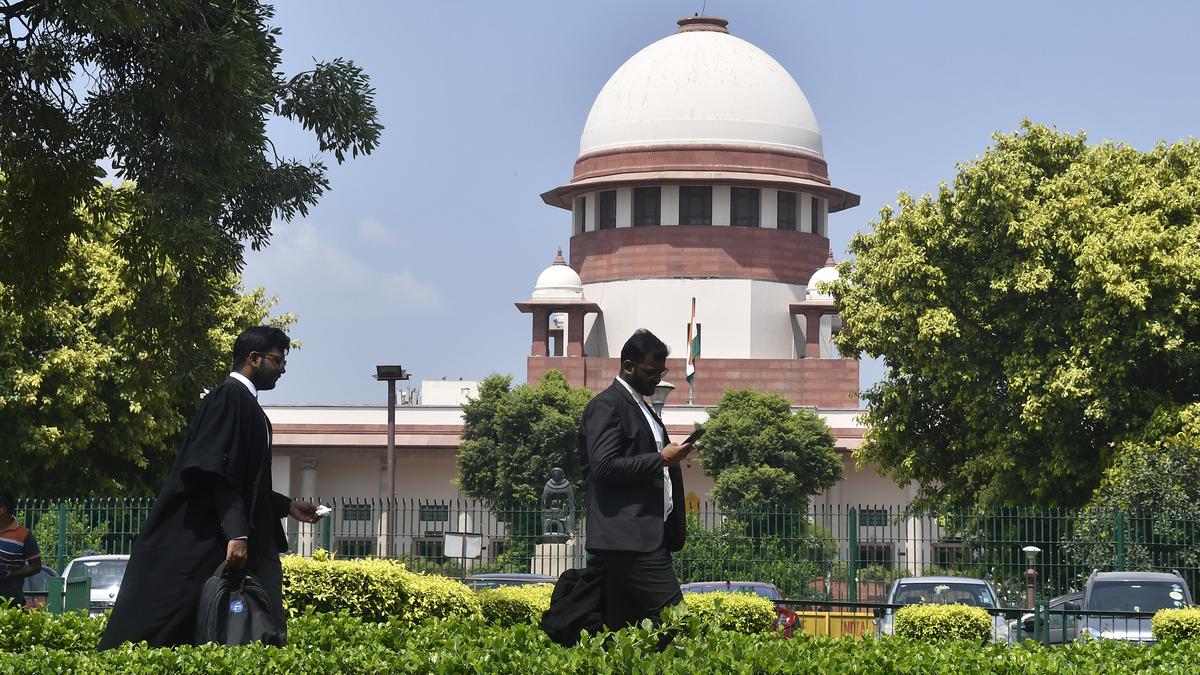
Do not intend to run Manipur administration; we can scrap Gita Mittal Committee or you can trust it, CJI tells petitioners
The Hindu
The issues raised by various petitioners, included distribution of Aadhaar cards and disability certificates to the displaced people of Manipur, to distribution of compensation to the families of the dead, reconstruction of religious buildings and homes destroyed in the clashes, disposal of bodies to functioning of courts in the State.
Faced with myriad complaints and grievances from petitioners in the Manipur ethnic violence case, the Supreme Court on September 25 said it could not run the State administration, and petitioners had to trust the Justice Gita Mittal Committee to do its job.
“Either we scrap the committee and hear the matter or you [petitioners] trust the committee ... We do not intend to run the Manipur administration… You allow the process to work out,” Chief Justice of India D.Y. Chandrachud addressed the petitioners during an extended hearing which spanned over an hour.
The issues raised by various petitioners, and to begin with, the committee itself, included distribution of Aadhaar cards and disability certificates to the displaced people of the State, to distribution of compensation to the families of the dead, reconstruction of religious buildings and homes destroyed in the clashes, disposal of bodies to functioning of courts in the State.
Solicitor General Tushar Mehta, seeing the Justice Gita Mittal Committee before the court, said all the panel had to do was make a “telephone call to the Manipur Chief Secretary to resolve immediate problems”.
The Justice Mittal Committee was constituted by the apex court to intervene and monitor relief and rehabilitation, restoration of homesteads, religious places of worship, etc, in Manipur. Chief Justice Chandrachud had said the committee, through its work, would endeavour to re-instill the Manipur people’s belief in the rule of law.
As for the petitioners, the court seemed to agree with the State government’s logic that complaints should be first brought to the committee for a resolution.
However, at one point, when complaints of overzealousness against the petitioners reached a pitch and threatened to devolve into a slanging match, the Chief Justice intervened to point out that “giving a hearing is part of the healing process, we know where to draw the line too”.

“Writing, in general, is a very solitary process,” says Yauvanika Chopra, Associate Director at The New India Foundation (NIF), which, earlier this year, announced the 12th edition of its NIF Book Fellowships for research and scholarship about Indian history after Independence. While authors, in general, are built for it, it can still get very lonely, says Chopra, pointing out that the fellowship’s community support is as valuable as the monetary benefits it offers. “There is a solid community of NIF fellows, trustees, language experts, jury members, all of whom are incredibly competent,” she says. “They really help make authors feel supported from manuscript to publication, so you never feel like you’re struggling through isolation.”

Several principals of government and private schools in Delhi on Tuesday said the Directorate of Education (DoE) circular from a day earlier, directing schools to conduct classes in ‘hybrid’ mode, had caused confusion regarding day-to-day operations as they did not know how many students would return to school from Wednesday and how would teachers instruct in two modes — online and in person — at once. The DoE circular on Monday had also stated that the option to “exercise online mode of education, wherever available, shall vest with the students and their guardians”. Several schoolteachers also expressed confusion regarding the DoE order. A government schoolteacher said he was unsure of how to cope with the resumption of physical classes, given that the order directing government offices to ensure that 50% of the employees work from home is still in place. On Monday, the Commission for Air Quality Management in the National Capital Region and Adjoining Areas (CAQM) had, on the orders of the Supreme Court, directed schools in Delhi-NCR to shift classes to the hybrid mode, following which the DoE had issued the circular. The court had urged the Centre’s pollution watchdog to consider restarting physical classes due to many students missing out on the mid-day meals and lacking the necessary means to attend classes online. The CAQM had, on November 20, asked schools in Delhi-NCR to shift to the online mode of teaching.









